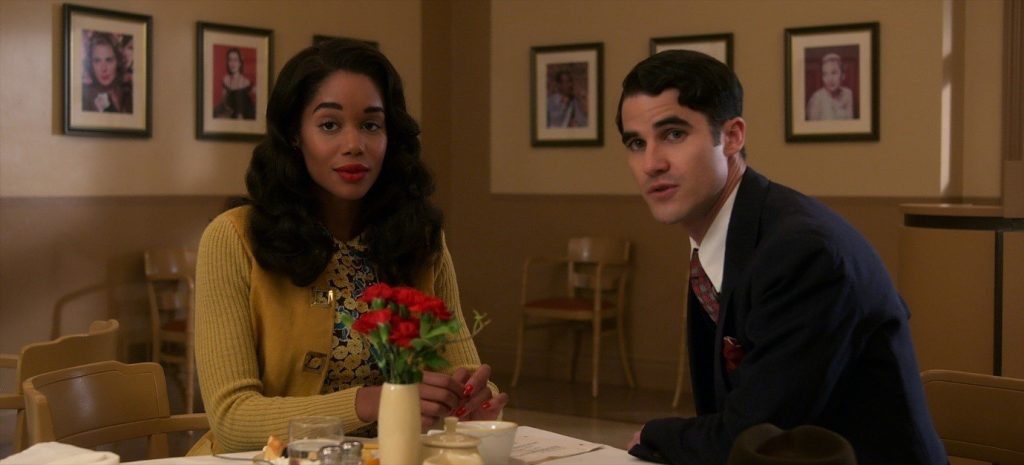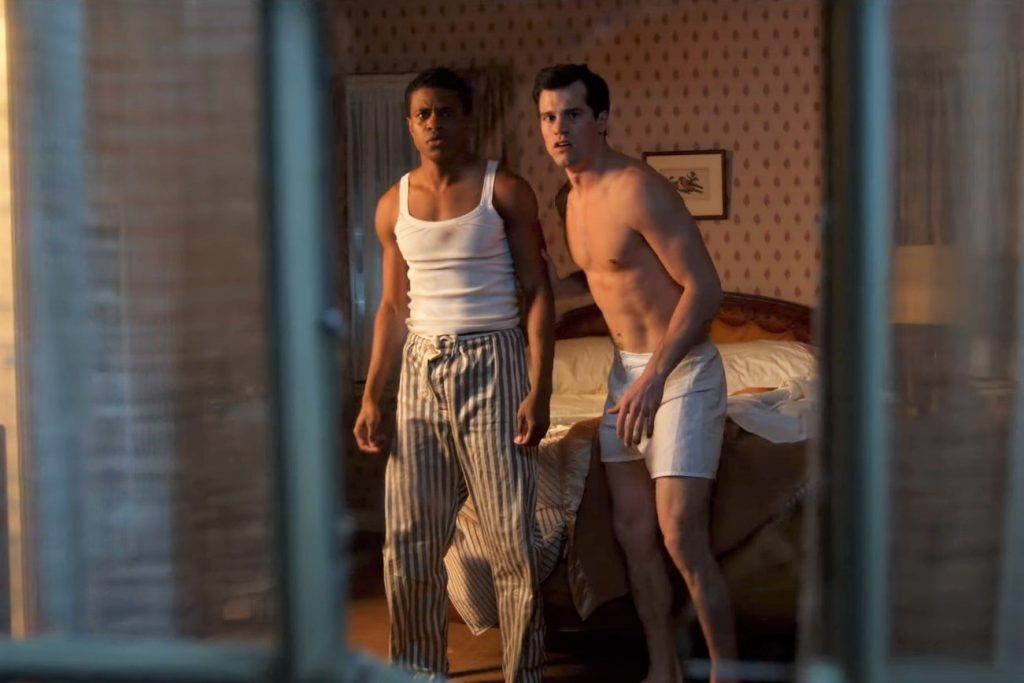A Netflix Original series that attempts to give us a glimpse of post World War II tinsel town, one that is plagued by prejudice, homophobia, and regressive intellect.
What’s it about?
Hollywood, a Netflix Original mini-series is directed by the famed Ryan Murphy, who is known for creating several acclaimed television series including Glee (2009-2015) and American Horror Story (2011). Vaguely based on the book ‘Scotty and the Secret History of Hollywood’ by Scotty Bowers, this extravagant part-fiction, part-reality series is an attempt to amend the horrific realities of Hollywood-as we know it- circa 1947. An industry that was rife with archaic social evils- racism, sexism, homophobia, sexual exploitation – the unfortunate ugliness underneath the glitz. With this in mind, Murphy created Hollywood to counter this historical reality by taking a host of these ‘IRL’ biggies and molding them into exaggerated fictionalized versions. But did it do justice to it? That may be questionable.
Storyline
The over-arching theme might come off as rather generic- a group of young, aspiring actors flock to the gates of sin city’s fabled Ace Studios, with hope filled to the brim and starry-eyed dreams in their hearts, and strive to make it big.
The first episode begins with a charming, blue-eyed hunk, Jack Castell (David Corenswet). Fresh out of the army, a novice at acting, he is seen struggling to bag virtually any prospects and has to find a way to fend for himself and his wife, Henrietta (Maude Apatow), who is also pregnant with twins. He stumbles across a high-end brothel that poses as a gas station, run by an effervescent Ernie West (Dylan McDermott), and reluctantly becomes a part of it.

This is fairly representative of Hollywood back in the day, where several big-shot muckamucks were surreptitious clients at ‘full-service stations’ like these. One of Jack’s loyal clients happens to be Avis Amberg (Patti LuPone), wife of the infamous Ace Amberg of Ace Studios, and that impels Jack’s entry onto the big screen. After Jack discovers that he is also required to get involved with male clients, he convinces screenwriter and friend, Archie Coleman (Jeremy Pope), to cover for him. Being black, homosexual and an ambitious screenwriter in Hollywood, Archie finds himself desperate for any traction he could get through meeting the right people. Through his work at the ‘gas station’, he meets Roy Fitzgerald – the eventual notable Rock Hudson of Hollywood. In reality, rumors of Rock being ‘in the closet’ were not unknown within the industry. Using that as a key narrative around the character, we see a passionate love affair between Rock and Archie in the series.

We are soon introduced to two other key characters – a dedicated director and ‘the good guy’ who is certain he can revolutionize the wrongs of the industry, Raymond Ainsely; and his girlfriend, Camille Washinton (Laura Harrier). Archie pens a script based on the tragic story of Peg Entwistle, a real-life woman who ended her life by jumping off the world-famous ‘Hollywood’ sign under the crushing injustice and atrocities within the industry. She soon became symbolic of the ruthlessness that defines the industry even today. By persuading Avis Amberg, Raymond manages to kickstart the ‘never seen before’, grand production of ‘Peg’, and casts his African-American girlfriend – who has also continually been victim to Hollywood’s humiliating racial streaks – as the lead. Barring Jack, these key characters are marginalized people who most likely never would have stood a chance in actual Hollywood, back in the day.
But that’s what the show’s creators wanted to do – reinvent the story into a ‘what could have been’, candy floss version. It is after this, that the series plunges into counteracting historical facts in an attempt to rewrite history and all its misdeeds. This is tricky, though. And is also what garnered Hollywood, the series, significant backlash from critics. While one can appreciate the well-intentioned motive behind spinning a more positive re-imagining of Hollywood history to not leave a despairing ending, many have deemed it vapid and surface-leveled. Creative liberty and a big budget can do unimaginable wonders, it may be tricky to know where to draw the line.
Final Words
The problem with re-writing legitimate historical events is that the slate is not blank; these are not just insipid fictional characters, but real people who tried their best to fight tirelessly against an oppressive industry. It seems as though Murphy was so keen on wrapping the show up in seven episodes, that a rather cursory job was done at it. Many have acknowledged how Hollywood adopts quite a reductionist, simplistic alt-history version and seems to dilute the very real discrimination. In the scene where Camille is denied entry into the front row of the cinema on account of her being black, she stands her ground and eventually gets her way in. Oh, if only Hattie McDaniel had thought of that. The whole thing is almost outlandish, a figment of Murphy’s fantasy-world- one where a Black female lead actress can win an award, where a gay, black man can hold hands with his famous boyfriend on the red carpet; one where everyone gets a happy ending.
Despite this, one must acknowledge the terrific acting by some of the cast members. Jim Parsons who plays Henry Willston does such a fantastic job at hurling crass abuses and being the antagonistic sexual predator, you’ll forget he was ever Sheldon Cooper. Holland Taylor and Joe Mantello are two others who stand out. Watch this one for yourself! You’ll realize that most of the showbiz as we know it, is a façade.
